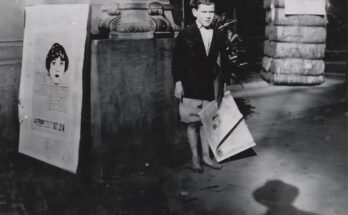Berthe Lambert was born in the small commune of Hellimer, located in the Moselle department in northeastern France. Like many Jews in rural France, Berthe’s life was likely intertwined with both her religious heritage and her French cultural identity. Hellimer, a modest village with a long history, would have offered a peaceful environment during her early years. Berthe grew up in a time when France was still recovering from World War I, with hopes for stability and progress shaping the interwar years. Her identity as a French Jew was part of the rich mosaic of French society—until anti-Semitic tides began to rise again in Europe.
With the outbreak of World War II in 1939 and the subsequent German invasion of France in 1940, everything changed. France was divided into two zones: the German-occupied north and the Vichy regime in the south, which collaborated with the Nazis. Jews in both zones began to experience increasing levels of persecution. Anti-Jewish laws stripped them of citizenship, livelihoods, and basic rights. Berthe, like countless others, became a target not just for discrimination but for deportation and extermination under the Nazi plan for the “Final Solution.”
By the early 1940s, deportations of Jews from France began in earnest. The Nazis, with the complicity of the Vichy government and French police, organized mass arrests and deportations. Many Jews were rounded up during raids, sometimes in the dead of night, and taken to transit camps such as Drancy, just outside Paris. These camps served as holding points before deportation to extermination camps. Berthe Lambert was caught in one such wave of arrests and was ultimately deported to Auschwitz in February 1944.
The train journey to Auschwitz took several days, conducted in sealed cattle cars with no heat, light, food, or adequate sanitation. Victims, including Berthe, endured unimaginable conditions. Upon arrival at the camp, most deportees were immediately subjected to the infamous “selection” process. Nazi doctors and officers quickly separated the prisoners into two lines: those selected for forced labor and those deemed unfit, who were sent directly to the gas chambers. As a woman and likely without any working ability the Nazis considered useful, Berthe was among those chosen for immediate extermination.
Auschwitz-Birkenau had become the central site of the Holocaust by 1944. Victims were ordered to strip, hand over their belongings, and enter what they were told were showers. These were, in reality, gas chambers designed to kill large numbers of people using Zyklon B. Berthe Lambert, like so many others, was murdered in one of these chambers. No trial, no farewell—just the abrupt end of a life under the machinery of genocide. She was one of the 76,000 Jews deported from France during the Holocaust, and one of over a million people murdered at Auschwitz.
Her murder was part of a broader campaign to annihilate Europe’s Jews, but her story is not lost in the anonymity of numbers. Berthe Lambert was a person—a woman with a name, a past, and a future cruelly taken from her. Her life, ended at Auschwitz, was part of a long and proud tradition of Jewish life in France, a tradition nearly destroyed by the Holocaust. Remembering her is a way of restoring that dignity and refusing to let her memory vanish with the passing of time.
In the years following the war, the memory of victims like Berthe has been preserved through memorials, archives, and public records. France has taken steps to confront its role in the deportations and to commemorate the lives lost. Her name is among those inscribed on memorial walls, read aloud during ceremonies, and preserved in digital archives to ensure future generations understand the scope and horror of the Holocaust.
Today, remembering Berthe Lambert is not only an act of historical justice but a moral responsibility. Her story speaks to the dangers of hatred, the consequences of collaboration with evil, and the enduring need for vigilance against anti-Semitism and authoritarianism. Though her life was cut short, her name lives on—etched into the memory of a world that must remember not only how she died, but that she lived.


